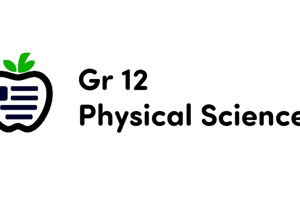Podcast
Questions and Answers
What does Newton's First Law of Motion state?
What does Newton's First Law of Motion state?
- An object will change its motion only when a force acts upon it.
- An object at rest will stay at rest unless acted upon by an external force. (correct)
- An object in motion will eventually stop unless acted upon by an external force.
- An object in motion will eventually slow down.
In the context of Ohm's Law, if the voltage across a conductor is doubled, what happens to the current?
In the context of Ohm's Law, if the voltage across a conductor is doubled, what happens to the current?
- The current remains unchanged.
- The current is tripled.
- The current is halved.
- The current is doubled. (correct)
Which statement accurately describes Archimedes' Principle?
Which statement accurately describes Archimedes' Principle?
- A body in a denser fluid sinks faster than in a less dense fluid.
- A body submerged in a fluid experiences a buoyant force less than its weight.
- A body submerged in a fluid experiences an upward force equal to the weight of the fluid displaced. (correct)
- A body submerged in a fluid sinks unless a force is applied.
According to the Law of Universal Gravitation, what happens to the gravitational force if the distance between two masses is doubled?
According to the Law of Universal Gravitation, what happens to the gravitational force if the distance between two masses is doubled?
What does Bernoulli's Principle indicate about the relationship between fluid speed and pressure?
What does Bernoulli's Principle indicate about the relationship between fluid speed and pressure?
Study Notes
Newton's Laws of Motion
- First Law (Law of Inertia): Objects maintain their state of rest or motion unless influenced by an external force.
- Second Law: Acceleration (a) of an object correlates with net force (F) and inversely relates to mass (m), expressed as F = ma.
- Third Law: Every action has an equal and opposite reaction, emphasizing interaction between forces.
Law of Universal Gravitation
- Every mass attracts all other masses.
- The attractive force is proportional to the product of their masses and inversely proportional to the square of the distance separating them.
Ohm's Law
- The current (I) through a conductor is directly proportional to the voltage (V) across it, given constant temperature.
- Expressed mathematically as V = IR, linking voltage, current, and resistance (R).
Archimedes' Principle
- An object submerged in a fluid experiences an upward buoyant force.
- This buoyant force equals the weight of the fluid displaced by the object.
Bernoulli's Principle
- In a moving fluid, an increase in the fluid's speed results in a decrease in pressure within the fluid.
- This principle explains various phenomena in fluid dynamics and aerodynamics.
Boyle's Law
- For a constant temperature, the volume (V) of a given mass of gas is inversely related to its pressure (P).
- Mathematically stated as PV = k, where k is a constant for the given amount of gas.
Studying That Suits You
Use AI to generate personalized quizzes and flashcards to suit your learning preferences.
Description
Test your knowledge on Newton's Laws of Motion, Universal Gravitation, Ohm's Law, and Archimedes' Principle. This quiz covers fundamental concepts in physics, emphasizing the relationships between forces, motion, and buoyancy. Challenge yourself with these essential principles of science.




